Have you ever wondered how the books your children read can influence their growth and development? If not, you’re not alone, and it’s never too late to start paying attention. As parents, we all wish for our children to grow up as thoughtful, intelligent, resilient, and kind individuals. Regardless of their gender, we want to create equal opportunities and experiences that will shape their future through formal education and into adulthood. At Little Scholars, we understand that our actions today in educating and caring for children have a profound impact on the future, no matter how big or small they may seem, and that includes the books we share.
There’s been a lot of research looking at how children’s books portray gender identity and equality. For example, a recent 2021 study titled “Gender equity in early childhood picture books: a cross-cultural study of frequently read picture books in early childhood classrooms in Australia and the United States” dug deep into the representation of gender in commonly-read picture books across eight early learning centres in both countries. The study involved 44 educators and 271 children, and its findings shed light on the impact of gender bias in literature on young children.
The research revealed that gender bias in literature such as picture books can have significant effects on children’s beliefs and attitudes. Boys may develop a sense of entitlement, while girls’ self-esteem and occupational aspirations may suffer. As well, these books can inadvertently teach children that girls are of lesser value than boys. Even a 2016 report by UNESCO found persistent gender bias in textbooks, which can negatively affect girls’ motivation, self-esteem, and participation in school, possibly limiting their career expectations.
The study carefully examined the themes and messages conveyed by the books (not named), both overt and subtle, in relation to gender and gender roles. It considered language, illustrations, emotions, attitudes, needs of characters, as well as activities, roles, and relationships portrayed in the stories.
The researchers looked at the use of gender-specific or neutral names, pronouns, and labels, along with language related to characters’ roles, appearance, occupations, and personality traits. For instance, females may be described or portrayed as beautiful, nurturing, or dependent, while males are shown as powerful, clever, or independent. They also considered the clothing worn by characters, their positioning on the page, and the activities they engage in were also analysed. These aspects contribute to shaping the image of gender roles in children’s minds. The study examined how female characters are often portrayed as passive, emotional, and dependent on males to solve problems, while male characters are shown as strong and competent. The portrayal of characters within a family dynamic was examined, including the division of household and career responsibilities between genders.
Another study, Children’s Book Illustrations: Visual Language in Picture Books, includes a section that discusses character development through illustration, and touched on character’s gender preference. While one study referenced from 2011 revealed male characters outnumbering female in picture books, some illustrators who were interviewed stated that about 20 years ago, the situation was reversed and there was a significant push for including more male characters into picture books to encourage boys to read more.
If this has you thinking about some of the books, often classics, that you have in your home and that you’ve read with your child, we don’t want you to feel guilty as you view them with a new lens! The next time you read them, it’s an opportunity to have a discussion about the book – why you love it, perhaps what might be outdated thinking, and that can spur on some wonderful conversations about gender equality that would serve boys and girls well.
It’s not all doom when it comes to children’s literature and the effect they can have on children! In recent years, there has been significant research and evidence that shows how children’s books that empower young girls can have a positive impact on their development and self-esteem as they grow. Here are some key points supported by research:
By bringing empowering children’s books into their ‘reading diet’, parents, educators, and caregivers can play a huge role in shaping the confidence, aspirations, and character of young girls. These books have the potential to leave a lasting impact, contributing to a more empowered and equitable generation of women in the future.
There are so many wonderful books that do support female positivity, gender equality and encourage young girls to break any glass ceilings that get in their way. But, we encourage young boys to enjoy these books, and parents to have similar conversations with all children – we can’t change the future without acknowledging the past and making change now. Here’s 10 empowering books we’ve chosen, but please let us know if there are more you think we should have in our campuses! (and where we could, we’ve linked to Gold Coast and Brisbane Libraries!)
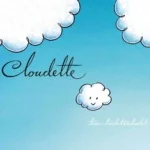
Cloudette by Tom Lichtenheld
Sometimes being small can have its advantages. But what about when you want to do something big, like help a giant garden grow, or make a brook babble? This charming book gets at the heart of what it means to make a difference no matter your size. Young children will find much to relate to as they follow Cloudette on her pursuit for greatness.
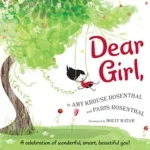
Dear Girl by Amy Krouse Rosenthal and Paris Rosenthal
This book serves as a love letter written for the special girl in your life; offering a gentle reminder that she’s powerful, strong, and holds a valuable place in the world.

Ada Twist, Scientist by Andrea Beaty
Ada Twist is a story about the power of curiosity in the hands of a child who is on a mission to use science to understand her world. This book is a celebration of STEM, curiosity, perseverance, and passion.
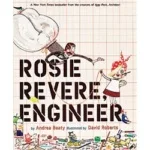
Rosie Revere, Engineer by Andrea Beaty
Ok, we couldn’t choose between these two Beaty books. Both scream ‘you can do anything’ which is exactly what we want our children to believe after reading books. These books, besides their important messages, also have great flow, rhyming and expressions, making them fun for parents to read out loud (over and over)
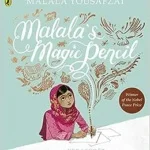
Malala’s Magic Pencil by Malala Yousafzai
Malala Yousafzai, the youngest recipient of the Nobel Peace Prize shares a story from her childhood in Pakistan that shows younger readers the world view that allowed her to hold on to hope even in the most difficult of times
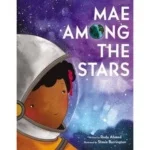
Mae Among the Stars by Roda Ahmed
Inspired by the life of Mae Jemison, the first Black woman to travel in space, this beautiful picture book will encourage young girls to reach for the stars, to aspire for the impossible, and to persist with childlike inspiration
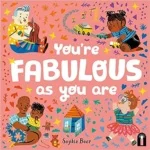
You’re Fabulous As You Are by Sophie Beer
This new book celebrates gender expression in all forms, whether it’s wearing sparkly tutus or stomping around in big black boots, to having messy fun or needing quiet time.
You’re Fabulous As You Are tells children it’s okay to choose any colour or change your mind, and encourages them to be completely and unashamedly their fabulous selves.
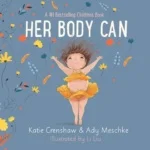
Her Body Can by Kate Crenshaw
Her Body Can is a book of self-love and body positivity declarations for all young girls. Its aim is to encourage our young girls to love themselves and their bodies for exactly who and what they are.
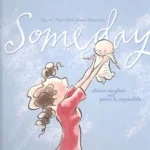
Someday by Alison McGhee
Someday is the story of what every mother wishes for her child: a chance to live life at its fullest to experience great joys, to stretch, to grow, to understand sorrow, to have a future to have a someday.
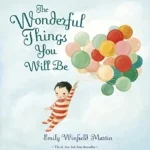
The Wonderful Things You Will Be by Emily Winfield Martin
From brave and bold to creative and clever, this book celebrates all personalities and their potential.
As parents, educators, and caregivers, we can choose books that promote equality and challenge gender stereotypes. By offering children a diverse range of literature, we can empower and encourage them to become open-minded, respectful, and compassionate individuals. At Little Scholars, we are committed to fostering an inclusive environment and nurturing a generation that values equality and embraces each person’s unique potential.
Further research
Do your children play with dolls? There have been some fascinating research findings that highlight the advantages of dolls as a tool for nurturing social and emotional skills in children. Recent studies have shown that doll play provides children with opportunities to engage in imaginative role-playing, develop empathy, and enhance their communication about others’ thoughts and feelings. There’s also been some research that looks at traditional notions of gender preferences in toy choices, emphasising the importance of providing children with diverse play experiences, all of which we’ll explore here.
Research challenges the notion of innate gender preferences in toy choices. Studies have found that even baby boys can and will show a preference for dolls over trucks, indicating that toy preferences may be influenced by environmental factors rather than biological predispositions. By encouraging children to play with dolls, we can help them develop a broader understanding of the world, challenge gender stereotypes, and promote equality.
Doll play provides opportunities for children to practice social and emotional skills by creating imaginary worlds, taking others’ perspectives, and talking about others’ thoughts and feelings, according to 2020 research titled Exploring the Benefits of Doll Play Through Neuroscience. The study, conducted by researchers from Cardiff University and King’s College London, saw 33 children between the ages of four and eight freely play with Barbie dolls and accessories, or tablet games with a social partner or by themselves.
The children were left to play spontaneously, but their chat was monitored and they were also fitted with a specialised cap containing state-of-the-art, functional near-infrared spectroscopy equipment – a form of brain imaging technology, making it possible to track brain activity while the child freely moved around.
The study found that the children talked more about others’ thoughts and emotions when playing with the dolls, compared with playing creative games on a computer tablet, such as a hairdressing game or a city-building game with characters.
Social play also activated the right prefrontal regions in the brain more than solo play, researchers found. These areas of the brain are responsible for regulating thoughts, actions and emotions.
The children in the study were also more likely to talk to the dolls versus characters in the digital games, which showed they were developing important social and emotional skills, according to the lead researcher.
“When children create imaginary worlds and role play with dolls, they communicate at first out loud and then internalise the message about others’ thoughts, emotions and feelings,” says lead researcher Dr. Sarah Gerson in the university release. “This can have positive long-lasting effects on children, such as driving higher rates of social and emotional processing and building social skills like empathy that can become internalised to build and form lifelong habits.”
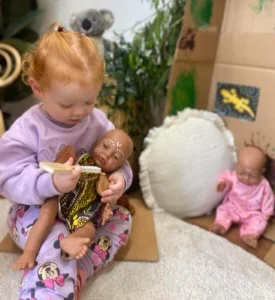
Closer to home, research conducted at the University of Western Sydney in 2013 found young baby boys seemed to prefer dolls to trucks, challenging the theory of an innate preference among babies for typical feminine or masculine toys. Researchers gauged the preferences of four and five-month-old babies by showing them pictures of male and female humans and dolls, as well as cars and other items.
Researchers then measured how long their gaze lingered on the objects, and calculated their preferences based on that length of time. Researchers found there was a general looking preference for dolls or doll faces over cars or trucks for both the male and female babies observed at five months old.
Other studies conducted at U of WS have found as babies age, there are sometimes preferences toward toys marketed at their own gender, but those preferences, researchers hypothesised, could be environmental or a result of nurturing, so if they’ve been given more opportunities to play with toy trucks than dolls, they may show a preference for toy trucks.
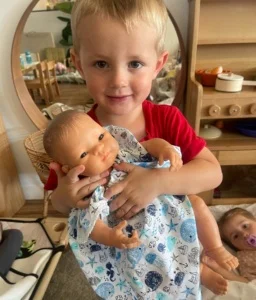
Babies don’t typically show gender preference until at least their second year, according to some studies, indicating that preference later may be the result of their physiological changes, cognitive development or social pressure.
Playing with dolls is a version of role-playing, and that’s a great thing in child development. Dolls are used to create narratives while playing. When children do this, they’re learning to make sense of the world and this kind of role-play helps them see things more broadly.
Other research has looked at how gendered toys are approached by each sex. One study in the 1980s had a few dozen girls and boys (aged four to nine years) presented with toys in three sex-labeled boxes and were given six minutes to explore the objects. The children’s memory for information about the toys was tested one week later. Results show that the children tactually explored toys labeled for their own sex more than similar objects labeled for the other sex, and remembered more detailed information about own-sex than other-sex objects. Between ages three to five, gender is very important to children, according to an an associate professor at the University of Kentucky. So when children are presented with very specifically-marketed gendered toys, they pay careful attention.
This is a time we should encourage children to play with all kinds of toys, as it sets the foundations for free thinking, creative play and removes the constraints of gender.
The benefits for children, regardless of their sex, of playing with dolls are numerous and supported by research. Doll play provides opportunities for children to practice social and emotional skills, develop empathy, and engage in imaginative play. Studies have shown that doll play leads to increased communication about others’ thoughts and emotions, activating important brain regions responsible for regulating thoughts, actions, and emotions.
At Little Scholars, we recognise the importance of supporting children’s interests and providing them with a diverse range of toys and play opportunities. Our home corner, which includes dolls and role-playing materials, encourages children to explore, imagine, and develop important skills and dispositions for learning. By embracing doll play and role-playing activities, we foster autonomy, creativity, problem-solving abilities, and a sense of agency in our children.
References:
At Little Scholars School of Early Learning, we’re dedicated to shaping bright futures and instilling a lifelong passion for learning. With our strategically located childcare centres in Brisbane and the Gold Coast, we provide tailored educational experiences designed to foster your child’s holistic development.
Let us hold your hand and help looking for a child care centre. Leave your details with us and we’ll be in contact to arrange a time for a ‘Campus Tour’ and we will answer any questions you might have!
"*" indicates required fields
Let us hold your hand and help looking for a child care centre. Leave your details with us and we’ll be in contact to arrange a time for a ‘Campus Tour’ and we will answer any questions you might have!
"*" indicates required fields